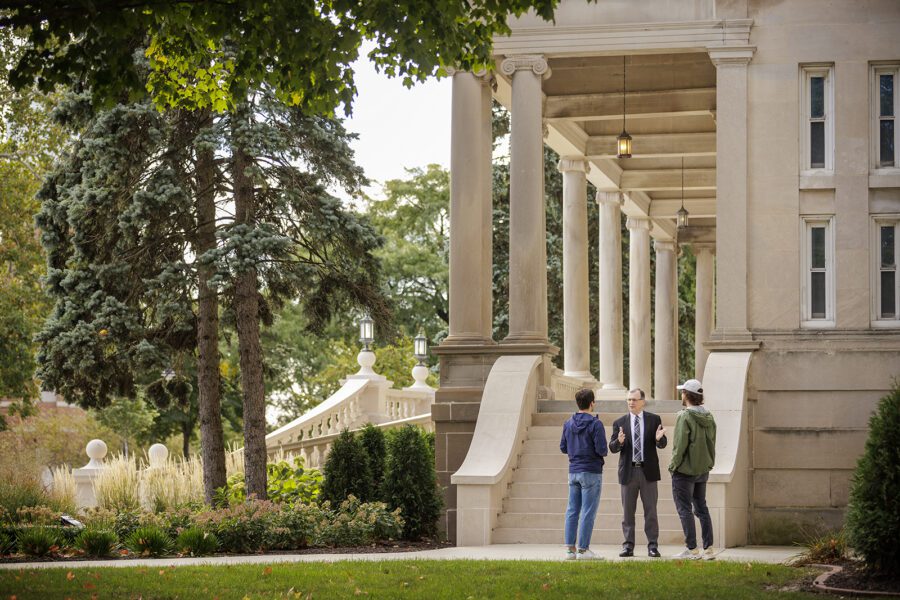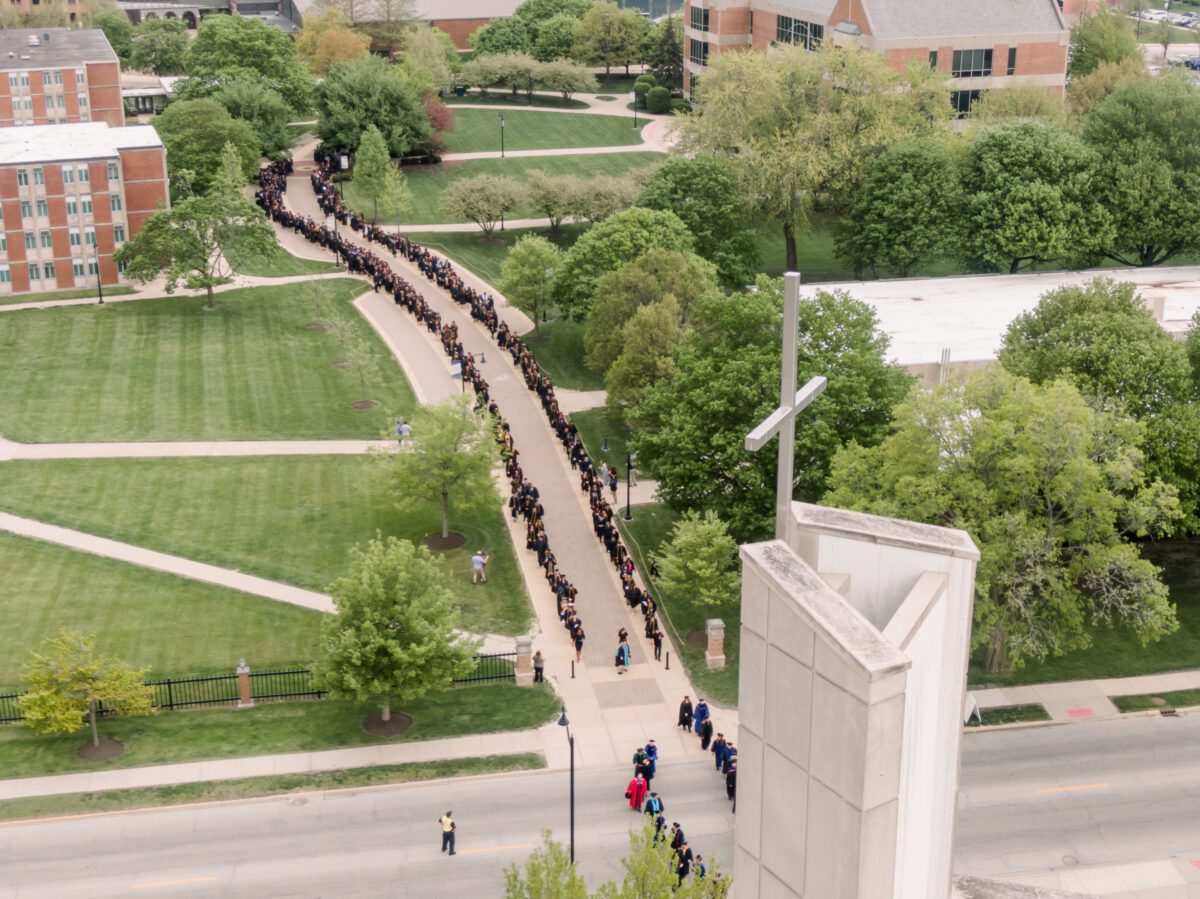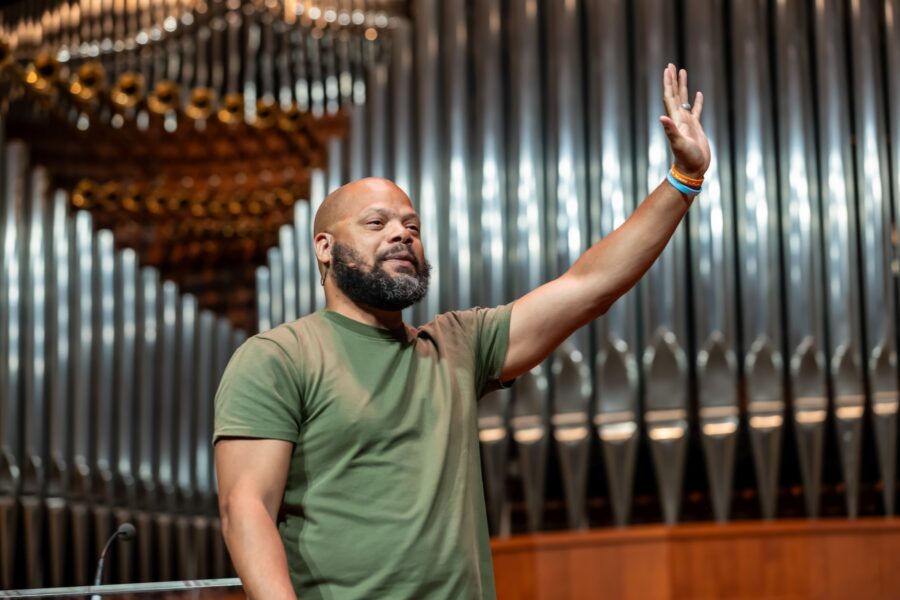

Zechariah: Future
Adapted From Sixty-Six: A Sociologist Reflects on Scripture, Its Themes, and Their Relevance
by Dr. Kent Olney
God’s people have always been forward-looking. While in Egypt they looked forward to returning to their promised land. In Babylonian exile they looked forward to the restoration of the temple in Jerusalem. Century after century they awaited the coming of the Messiah. One of the major threads of the Old Testament is anticipating what is yet to come. We find the same pattern in the New Testament: Its writers were expecting the second coming of the Messiah. Paul wrote, “For to me, to live is Christ and to die is gain” (Philippians 1:21). This was his way of saying the present is good, but the future is better. John referenced that future when he spoke of “the Holy City, the new Jerusalem” (Revelation 21:2). The future has always beckoned God’s people.
Zechariah was written through that futuristic lens. A product of the exile in Babylon, the name Zechariah means “the Lord remembers,” serving to remind the prophet and those who came after him that God does not forget His promises. The future is filled with hope.
Eighteenth-century writers such as John Wesley and William Cowper found great value in the book of Zechariah. When Wesley was 5, he had to leap from an upstairs window to escape a fire that destroyed his family’s home. During his adult years, he would use Zechariah’s words to describe the experience, frequently referring to himself as “a brand plucked from the fire” (3:2). Cowper was later inspired to write “There Is a Fountain Filled With Blood” after reading Zechariah 13:1, wherein Zechariah declared, “On that day a fountain will be opened … to cleanse them from sin and impurity.” Thus, Zechariah, by pointing to a promising future, inspired significant figures of the Christian faith.
Interesting features are found in Zechariah. The first half includes several visions, along with conversations with an angel. Only three other prophets — Isaiah, Daniel and Hosea — even mention an angel, and Judges is the only other Old Testament book to refer to angels as often as the 20 references in Zechariah. The second half of the book focuses on the future. That focus is not subtle. The word will, indicating future tense, occurs over 200 times. Clearly, this prophet who communicated with heaven had a message about the future. He anticipated what lay ahead for the people of God.
In contrast, today we are typically present-oriented, concerned about our pleasures and feelings right now. We make decisions that give us a thrill in the moment and put off serious thought of any possible consequences later. Perhaps nowhere is this more evident than in our buying habits. The use of credit allows us to enjoy a product today while postponing any worry about how we will pay for the item. Amazon makes billions of dollars annually because it recognizes this dual tendency. We want consumer products on our doorstep in the morning. Tomorrow has become the outer boundary of our future; beyond that is an abyss we cannot fathom or tolerate.
To be a future-oriented people requires four qualities increasingly in short supply: patience, perseverance, contentment and faith. Patience has to do with being willing to wait. Perseverance, by definition, implies adverse circumstances. To persevere means to keep focused on a goal and move forward, even when the conditions are unfavorable. Contentment refers to inner peace regardless of life’s conditions. People who are content understand there is a bigger picture unfolding beyond themselves. Faith points upward and forward. Those with faith embrace the Sovereign Lord Who is in control. Hebrews 11:16 reminds us that faith also looks forward, describing those who are “longing for a better country — a heavenly one.” People with faith know that God has “planned something better for us” (Hebrews 11:40). That was the audience — people of patience, perseverance, contentment and faith — Zechariah had in mind.
Though written some 2,500 years ago, Zechariah’s message still rings true today. “The word of the LORD” that stirred him — and that was acknowledged another 12 times throughout his book — described a future with two distinct features.
First, impurity will be removed (13:1–2). All that is filthy and defiled will be expunged from the earth. We must remember this when discouraged by the depths of sin, corruption and perversion in today’s culture. Sin will not always have the upper hand.
Second, sovereignty will be revealed. A day is coming when there will be no mistake about who is in charge. History tells us of those who have risen to such heights of power that they think themselves invincible. Zechariah assures us: “The LORD will be king over the whole earth. On that day there will be one LORD, and His name the only name” (14:9). One day the Lord (the Hebrew word is Yahweh, the great “I Am”) will make known to the world that He alone is the supreme king over all that exists.
In short, Zechariah’s timeless message proclaims these truths:
We have a future.
That future will see wrongs made right.
The best is yet to come.
The Lord will be king.






